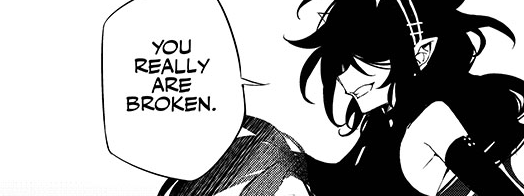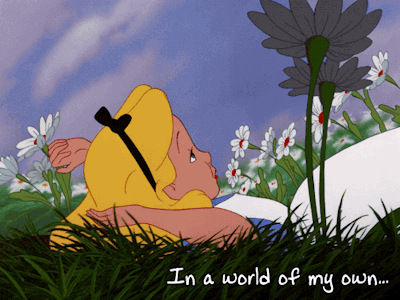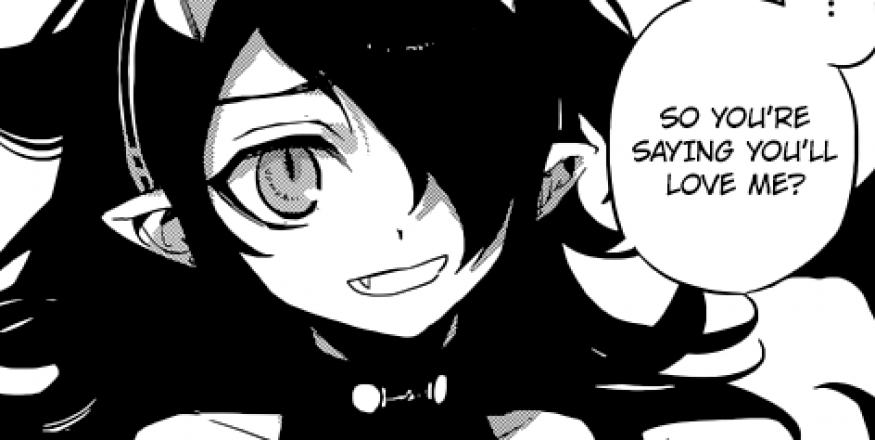
Okay.
I've said a lot already, but thankfully there's a lot to tell, so it's not like I'm moving too fast. However, let me take a little break from the personal narrative that characterizes this auto-biography to explain a few things you'll need to know.
Remember how I was saying that I always had the impression of being haunted in my house? Well, not to get too depressing on you too fast, but since you asked, you should know that everything about Hell was pretty haunting. That's because Hell was an exact copy of the mortal world we all used to belong to, minus 99% of its light.
Is that a rough and biased estimate that I made instead of an objectively-determined statistic?
You bet.
To understand just how time periods and different dimensions work for dead souls like myself, try this. Close your eyes and imagine a lonesome blue globe suspended in space: Planet Mars. 
Just kidding! Earth.
Picture the world you know, with its land masses, bodies of water, cloud patterns. Think about the infrastructure and human activities that have shaped the physical structure of the planet.
It doesn't have to be a super fancy visualization to work. Now simply imagine a watch, below the globe. Or a timeline. Or Max's hand from Life is Strange—it's all the same. And imagine you using that watch, or that timeline, or that hand to change the time period.
It doesn't matter in which direction you're traveling: You could be going forward in time, or you could be going backward. But what happens to the Earth?
The answer is that it changes. The world is never the same for any two separate times, even if they're only minutes apart. Do you know how much can change in a minute?
Earth can be significantly different from moment to moment, and it can be radically different from year to year, from decade to decade, and from one century to another. To the historical layperson *cough, cough* who is changing the time in this thought experiment, Earth may often seem like a completely different and unexpected world.
As time passes, regardless of its direction, you'll see different architectural structures, if any. The landscape will change. Mountains will be pushed up with time, and volcanoes will switch from an active to a dormant state and back again. Regional temperatures and even the planet's overall climate will change, affecting the traits and distribution of species as they're forced to adapt in order to survive their new conditions. Rivers will dry or fill up, glaciers will rise or disappear, and coasts may be swallowed by the waves.
Again, suppose you're looking at the planet from space, and it's—I don't know—1639. A long time ago.
Never mind the landscape of the world, or the politics of the planet, or even the people. It really doesn't matter. Just understand that, for that particular time, the world had a very distinct appearance.
You've probably been picturing the Mortal World this whole time. Which is also known as the Mortal Dimension. There are two other dimensions I know of: The Heaven Dimension, and—of course—the Hell Dimension.
How would I define a dimension? Good question. You probably aren't too familiar with the idea, so here's my best attempt.
The same Earth is the location for all three dimensions. For a particular time—such as 1639—the Earth had a certain layout, and that layout was used by all three dimensions.
It could be likened to changing the channel. The same screen is used for the viewing of different channels or different forms of inserted media, such as music CDs or movie disks. It's not the best analogy because you can't watch two things on a single screen at the same time, but it should give you a better idea of what I'm talking about nonetheless.
Speaking of which, I wished I could change the channel at my house. That is, to something other than static.
The three dimensions were different versions of the world, and although they had their structural differences, they were all pretty similar to the Mortal World. It's like the Mortal World was the default, and changes in the Mortal World resulted in changes in the dimensions that depended on the Mortal World.
Now that you're a bit more familiar with the whole thing, let me go back to what I was saying.
Another thing that made Hell haunting was the simple reason that unless you had the money to operate your magic time-traveling, teleporting watch, you were basically stuck reliving a very important day over and over again.
And it was not your birthday.
But I'm guessing you already knew that.
I was standing near the front door, lost in thought. I stayed this way, caught in my daydream, until something very unusual and unexpected happened, all at once and out of the blue.
I got a grip.
Finally able to move on, I started to move. My bare feet sank into the furry carpet—its warmth a nice contrast to the fiery pain of the unforgiving ice outside—and passed gracefully over the tracks my father had laid down.
Which means I almost tripped on them again.
I ignored the dining room, making a direct move for the stairs. These were also carpeted. With each step, I felt my memories pressing down on me with increasing heaviness. They were suffocating me, and then seemed more intense than ever because that day was the last day.
The memories had been around me the entire time, and everywhere. Even for a person such as myself—who by nature was self-absorbed and lost in her own world—my external environment had been inescapable, and that external environment in which I'd been dwelling for so long was, quite frankly, the past.

The memories had only become more maddening with time. As a result of Satan's brilliant idea, my mind was constantly reliving the past. It had been caught, tangled, and lost in the past as though I'd fallen into the river of memories, not that such a river existed. (The closest thing I knew to such a river was the underworld's River Lethe: The river of oblivion.)
It was impossible to be sane in such an environment. Anchored to the past and weighed down by its baggage, it was impossible to move forward.
Until God's Reinvention Program.
But maybe I lied back there, when I suggested there was no true river of memories, or at least not in the underworld. Because for me, that's what my sister's room was.
In the middle of the steps, there was a break, where I had to turn 180 degrees to continue upward. Which meant now I was facing the front of the house. As I neared the second floor, sunlight hit my eyes and made me squint. The light was coming from Victoria's room. At the top of the stairs, I took a right, and the moment I stepped through her open doorway, the memories came back to me. My eyes started to water.
Because of the brightness, obviously.
Before I go on with my extremely objective, rational, and unemotional account, let me make something clear. I visited that room often, and I usually didn't get so nostalgic. The only reason that day was any different was that I knew it would be my last day there. I couldn't see any reason for ever returning—major emphasis on ever—unless I failed to redeem myself in time, but I was going to do everything to ensure that didn't happen.
Missing the window wasn't an option.
Let me start off describing Victoria's room with telling you that it was something of a mess.
That's a total understatement.
She liked the color red. And the color yellow. And all things neon, and bands, and books, and music. And that was—no, I am not exaggerating—clearer than crystal when you peered through her door.
Her walls had had their own color, once. It had been a nice white which went with the rest of the house. Then Victoria decided to buy a bunch of posters and print a bunch of pictures and plaster them over her entire room. Over practically every open area of wall space.
But it was cool. It looked fun, and it looked exciting. And whenever I was in a mood—whenever I was apathetic or downright sad—all I had to do was come in, because her door was literally always open.
She had a TV in her room, which I thought was really cool. I wasn't old enough to have a TV in my room, Mom and Dad said. She had several bookshelves stuffed with a diverse and, dare I say, eccentric collection of narratives, and whenever I wanted to read something new she would lend me hers.
"Mi cuarto es tu cuarto," she would say. Which means, you know: "Your room is my room." Kind of like "Your house is my house," which is basically meant as a welcoming expression. She liked to say things in Spanish, showing off what she had learned in high school. She had to take two years of a foreign language in order to graduate. It was one of the requirements.
Her accent was actually really bad, but I never told her that. I thought it was cool.
If you weren't blinded by the sunlight when you walked into her room—she always pulled her curtains back and left her windows wide open—then you were blinded by her choice of colors. As you probably guessed, her artistic nature didn't stop there: It was reflected in things such as her personality and fashion style. She was easily the kind of person who could wear heels, sunglasses, large, gold-colored hoop earrings, a sunhat, red pants, and a yellow shirt at one time—with a certain combination of necklaces and bracelets—and manage to look good in it. She was confident, loud, opinionated, and positive.
And everybody loved her.
She was African American, like our parents. Her dark skin had a warm and golden glow, and she had long, straight, chocolate-colored hair. She did her make-up every day before heading out, and boldly: In her mind, make-up was just another set of brushes and paints and the skin was just another canvas. A dynamic; ever-changing canvas on which new ideas could always be tried. She lived her life creatively, and bizarrely; passionately, and fully. Not caring what others thought.
And she helped me do the same.
I walked across the room to kneel beside the bed. I reached underneath for a brass knocker. I pulled, and out slid one of two drawers. Reaching my hands inside, I scooped out a decorated, silver chest. It was small and light, and thus easy to carry around. I hoisted it onto the bed, and was about to push the drawer shut when something in the back of my mind made me stop. I thought for a moment, then slipped my hand inside until I felt the smooth and glossy surface of a photograph. Victoria used to have it out on full display, protected by glass, until I told her how I felt about myself. I didn't even have to tell her to put it away. I never... I don't think I ever gave any indication of how it made me feel to see it. She just knew.
She was that type of a person.
Part of me warned against it, but curiosity got the best of me, so I stole a glance at the photograph. It was old now, though it looked quite new since it hadn't been many years old at the time of the time freeze. It was a picture of Victoria with her younger brother. She was smiling broadly, and she had one arm around his shoulder. Whereas she looked comfortable—confident, even—her younger brother looked timid, and reserved. His skin was light like mine, and he had the same dark hair. His large, emerald-green eyes—adorned with long, dark lashes—were familiar. There was depth there, intelligence, and sadness.
He was young in the picture, maybe eleven years old, and was slim. His hair was a little long for a boy's, covering his ears and hovering around his face, although it didn't reach past the shoulders.
That's because it wasn't up to him, I thought. I put the photograph back, and closed the dark, wooden drawer. Then I turned my attention to what lay on the bed. I reached for the silver chain I wore around my neck—specifically, its hanging pendant, which was a small key. With it, I unlocked the silver chest.
Unlike most of the objects in my surroundings, that chest did not exist in that house on Christmas Eve of that year. I'd bought it, whilst in the underworld, to protect my stash of drachmas. That's why whenever I put the chest somewhere, it stayed there. Unlike everything else in the house, because of the—you guessed it—time freeze.
It was the same with the key, and the chain—which I'd also gotten while here in the underworld, using drachmas as currency, of course—and that's why I could transport those things, too. It wasn't like the photograph, which actually did belong to that fateful day. I wanted to take the photograph with me, but I couldn't: I could try to, but the reality was that the moment I'd take my eyes off it, it would vanish and return to the drawer under the bed.
I'd also bought a beanbag chair. And pens and sheets of paper to write. And I'd grown a small collection of books.
But I couldn't take any of those things with me, or at least not yet. When reading the details of the program, I'd learned that all of those underworld-bought items would be brought up to Heaven if I made it there, and if I so wanted. So I wasn't too worried about leaving them behind, though I did make sure to find them good hiding spots.
You know, so that nobody would break in and steal my hard-earned riches while I was gone.
The only purchased goods I hadn't hidden away lay across the bed, not too far from the chest, and they were mostly warm winter gear. That meant things such as green snow boots, purple gloves, and a long, black winter coat.
I unlocked the chest and pulled it open to reveal shining gold drachmas. Satan had enchanted them, such that light seemed to emanate from the coins themselves. Such that in utter darkness, they were clearly visible. Then I dumped the contents onto the bed and counted my money.
The results left me feeling slightly but not terribly disappointed. It wasn't much, but it was enough.
Five minutes later, I stood in front of the mirror, admiring myself. My jet-black hair cascaded down my shoulders, and my gold wrist bracelets peeked out from underneath the long sleeves of the black, detective-like coat. My black-and-gold backpack had been packed, and I now wore appropriate clothes considering the outside weather. I gave the room a final sweep of my emerald eyes, and then raised my watch-sporting wrist. I manipulated the device via touchscreen, choosing my destination. That is, a time and place where there should've been a fairly unoccupied Registration Center.
If all went according to plan—which, let's face it, never happened—the decision would decrease my wait time substantially.
I gave the room a salute, then vanished into an array of neon blue pixels.
ns3.143.247.214da2





















